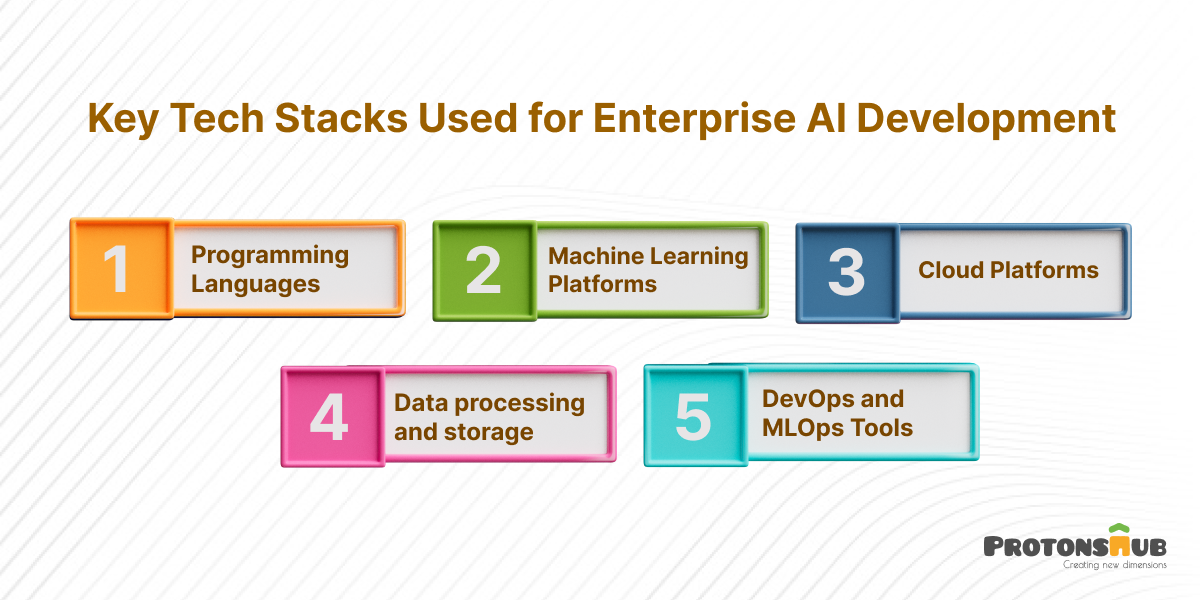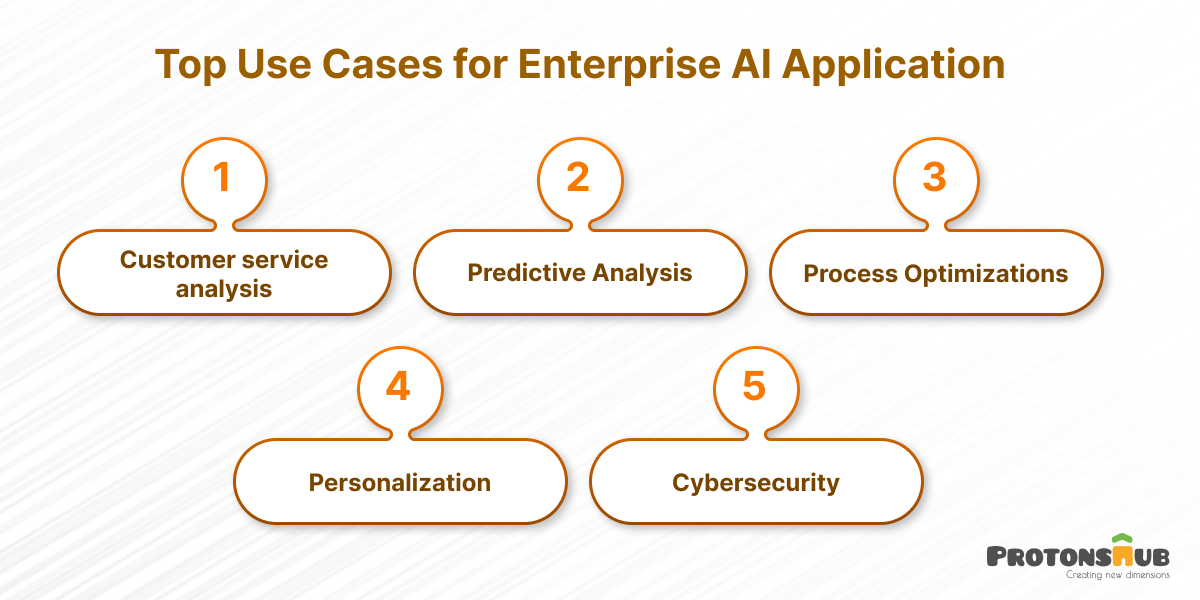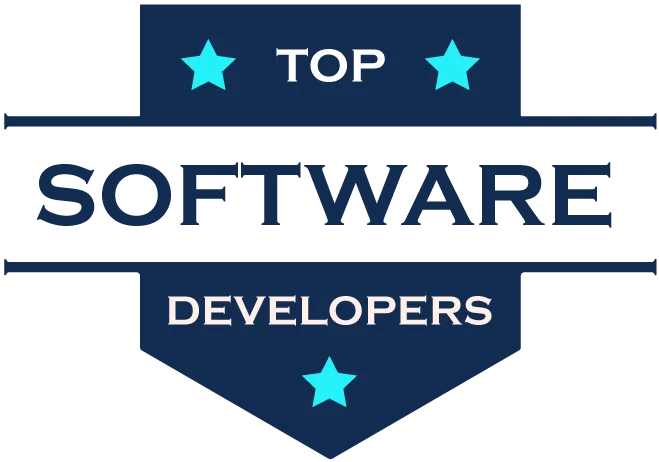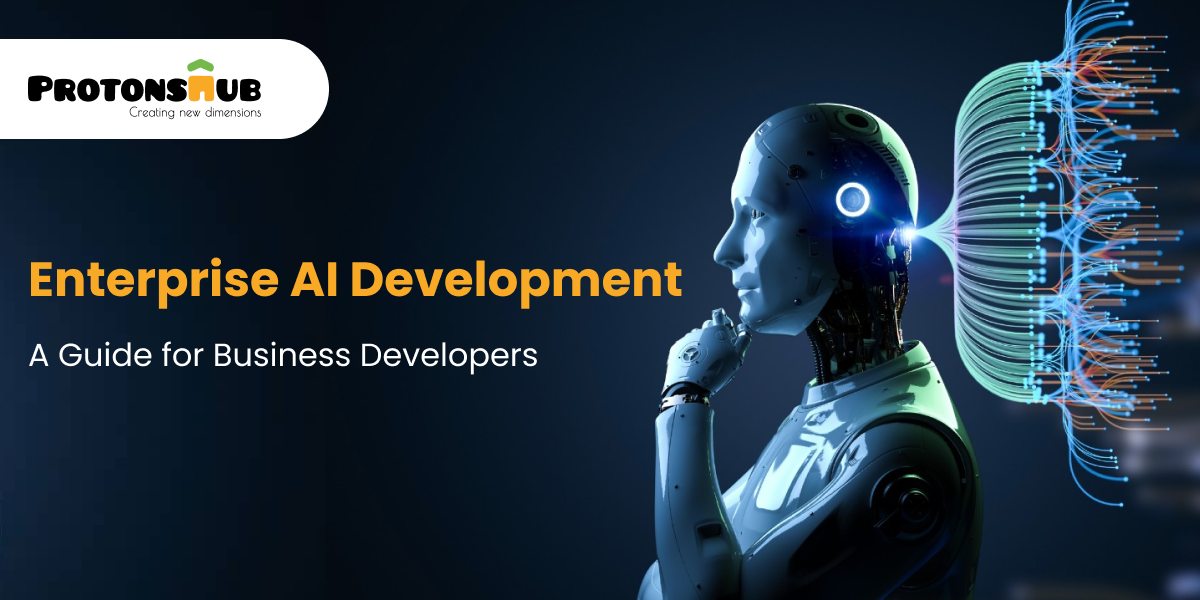Artificial Intelligence is not just a buzzword anymore. It is now a strategic asset in the arsenal of businesses, allowing them to achieve goals and objectives and catapult them into the next generation. Particularly speaking, enterprise AI development is the leap that is actively revolutionizing the way the corporate world now operates, be it in operational automation, project and process management, or customer-side services.
As a result, here is a guide that dives deep into the exploration of the rabbit hole that is called enterprise AI development. Be it the AI tech stack that is hype and is now actively serving key industries across the domain. Coming to that, we will also explore how it does so. So buckle up, because the next stop is:
What is this Enterprise AI?
Alright, so as the world and the economy go more and more online, the markets are becoming more and more data-driven as each day passes, and with it, the ability of the leaders to make split-second, data-informed, and calculated decisions becomes not just a luxury but a necessity. Enterprise AI development empowers leaders to:
- Automate the repetitive tasks, thereby streamlining the workflow
- Gain insights on large and complex datasets
- Customer experience enhancement through personalisation
- Reduction of operational costs and redundancies in the workflow
- Innovative integration across the business operations and offerings
Tech Stacks that are used in Enterprise AI development
A robust enterprise AI tech stack is what allows the seamless implementation of the AI at an enterprise level, providing flexibility and what the world calls bespoke, which is crucial for the enterprise artificial intelligence to be not only viable but indispensable when implemented at an enterprise level.
So here are some of the most popular and versatile tech stacks that the CTOs should look for:

1. Programming Languages
- Python: Arguably one of the most versatile and widely used programming languages in the world, it shines its best in AI development thanks to its robustness, flexibility, and easy syntax.
- R: A language that is made bespoke for data analysis and statistical computing.
- Java/Scala: The OG programming language preferred by developers due to its ability to handle large-scale data processing, multi-threaded SQL queries, and enterprise applications.
2. Machine Learning Platforms
- TensorFlow: Google’s very own open-source ML platform, heavily revered for its extensive ML capabilities, especially in neural mapping and logical flows, and its brilliance, especially with relatively smaller datasets.
- PyTorch: A Facebook ML framework that is attuned to user behavior and pattern recognition, well known for its performance and flexibility in implementation.
- Scikit-learn: An ML platform great for Appalachians that requires classical machine learning algorithms.
3. Cloud Platforms
- AWS AI/ML Services: Rekognition, SageMaker, Lex, etc.
- Microsoft Azure AI: Azure ML, Cognitive Services.
- Google Cloud AI: AutoML, Vertex AI, and more.
4. Data processing and storage
- Hadoop & Spark: Big data processing tools.
- SQL/NoSQL Databases: For Structured and Unstructured Data.
- Data Lakes: Store massive amounts of data.
5. DevOps and MLOps Tools
- Kubernetes/Docker: Some of the most widely used tools for containerization and deployment across the tech sector, making them one of the industry standards, and they are backed up by a massive online community.
- MLflow/DVC: An MLOps tool dedicated to managing ML models and experimentation, as well as rolling out implementations of the ML models.
So, now you know what enterprise AI development is all about and what kind of tech stack you would need to get things going your way.
But wait…
“How is all of this going to help me make my company a cut above the rest?” you may ask. Well, that brings us to—
Use Cases of the Enterprise AI Applications
Well, AI implementation in business is not just a tool that you can plug into the backend, and that's about it. With the way and the speed at which AI tech is progressing, it is actively transforming every major aspect of the business processes and reshaping the functioning of enterprises as a whole. Here are some of how the implementation of AI can help your business to set itself apart from the noise:

1. Customer service analysis
- AI chatbots and virtual assistants are available 24/7 that can serve the customers based on the resources at their disposal, saving the CSRs' efforts by directing them to the critical cases that demand their presence and expertise, thereby reducing the load on them significantly and at the same time improving the overall customer satisfaction and experience.
- Augmented with the sentiment analysis tools, these AI tools and applications can gauge the customer’s feedback more effectively and in greater depth by attributing the team’s actions to the customer’s feedback.
2. Predictive Analysis
- AI tools backed by advanced data processing and data modeling capabilities can forecast demands and sales and increase the productivity and efficiency of the team as per the previously collected and processed data, as well as predict, forecast, and stimulate the demand and customer behavior.
- AI applications and software layers can also monitor the equipment and machinery’s health and report on the need for preventive maintenance based on the data collected from the past and ongoing diagnostics.
3. Process Optimizations
- By employing the AI in the workflows, the AI can automate the routine tasks as per the needs of the organization through Robotic Process Automation.
- It can henceforth also be used in the handling of the documentation, processing, and cross-checking of the critical documents as well as assist in the customer or employee onboarding, invoices, and contracts.
4. Personalization
- The AI can be employed in the user behavioral analysis and offer personalized offerings based on the user’s inclination and behavior.
- Furthermore, the application of AI doesn't end here. They can also be used to furnish dynamic proposals for the clients and customers by matching their requirements to our offerings based on the best and most up-to-date collected data, thereby enhancing the user experience.
5. Cybersecurity
- Arguably one of the most advanced and novel uses of AI in the enterprise ecosystem can be seen in the advanced, preemptive, and automated vulnerabilities and threat detection capabilities of AI and its ability to promptly patch vulnerabilities, making the discovery of said zero-day vulnerabilities hard to detect and exploit by the hackers, thereby enhancing the security of the whole IT system in place, which is crucial for the data security of the enterprises.
- This makes AI-enhanced cybersecurity indispensable for the security systems of the banking and fintech sectors, where data security is of utmost importance.
Conclusion
Enterprise AI development is no longer an optional upgrade—it’s a strategic imperative for businesses aiming to stay ahead in a hyper-competitive, data-driven landscape. From automating mundane processes to enhancing customer experiences, delivering real-time insights, and securing digital assets, AI is actively reshaping how modern enterprises operate.
The journey toward successful AI adoption begins with the right tech stack, clear objectives, and a willingness to innovate. Business developers and decision-makers must recognize AI’s transformative potential and leverage it not just as a tool, but as a catalyst for sustainable growth and competitive differentiation.
With the right implementation strategy, enterprise AI doesn't just optimize—it redefines the way your organization creates value.



























